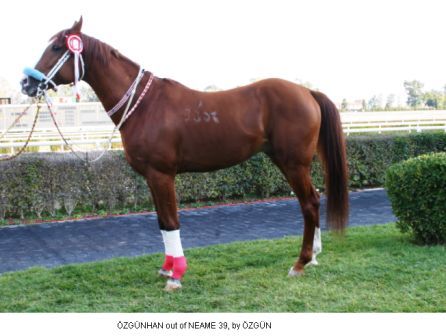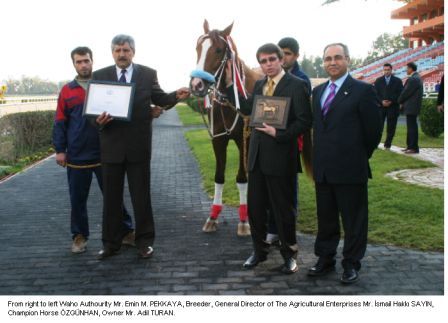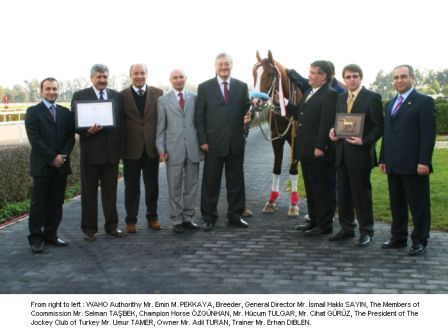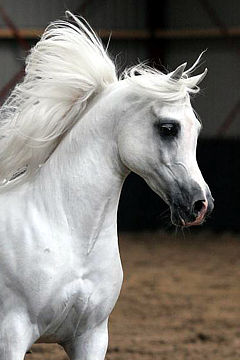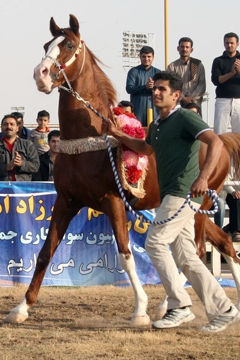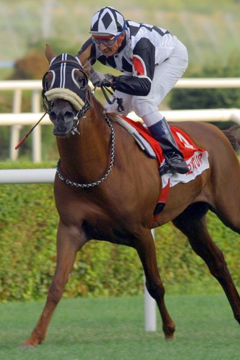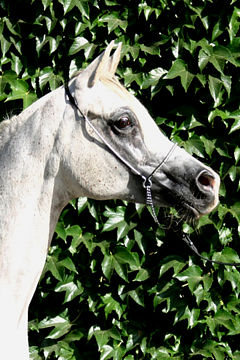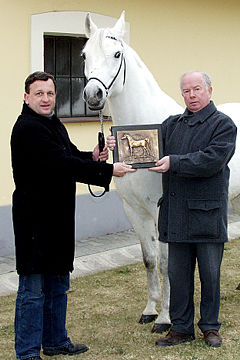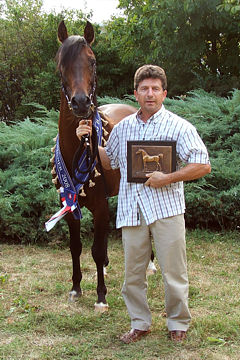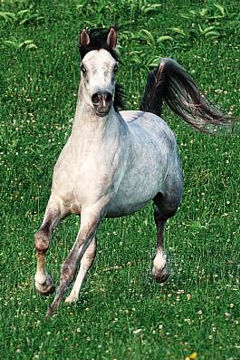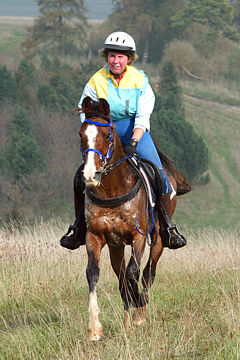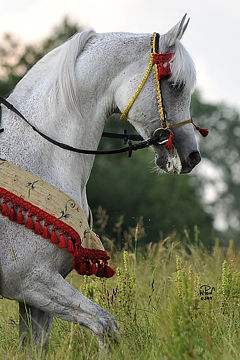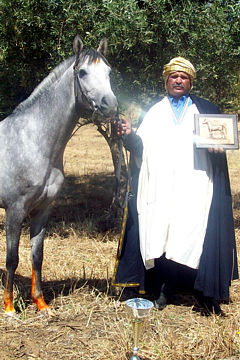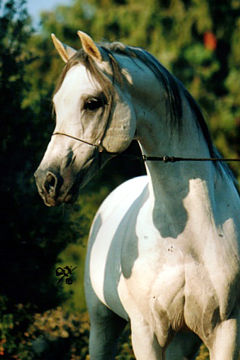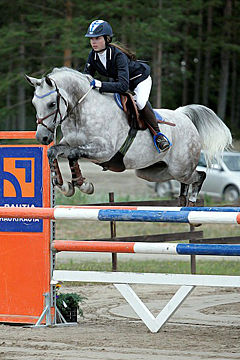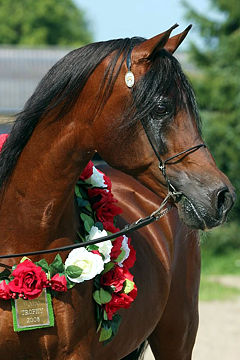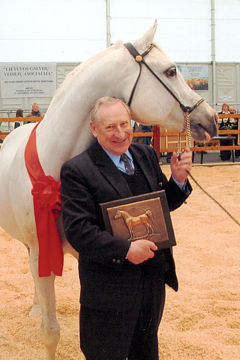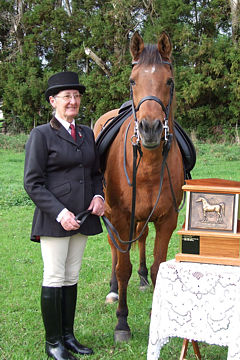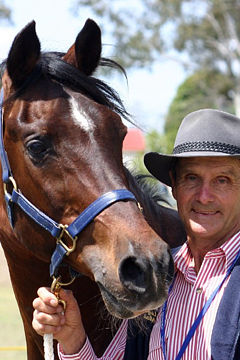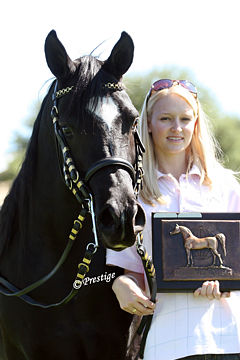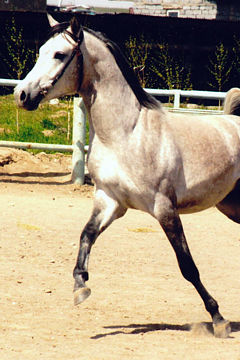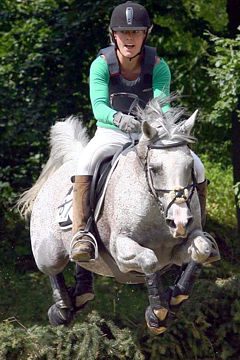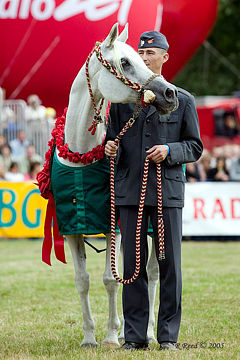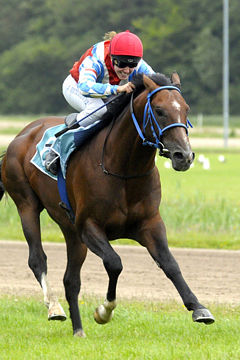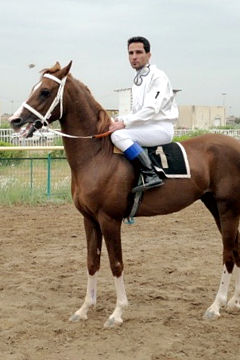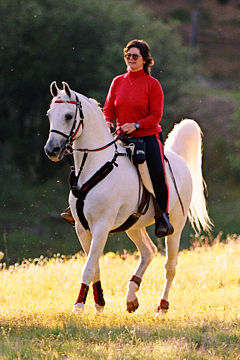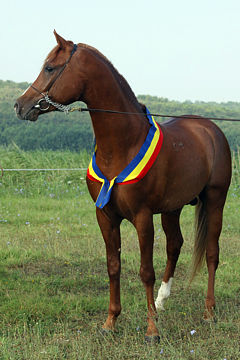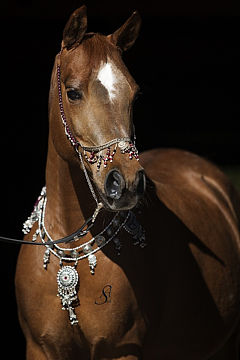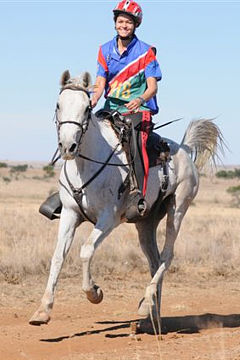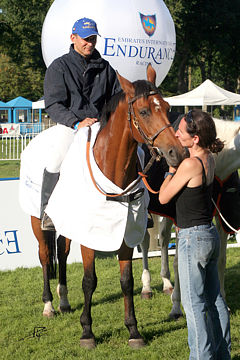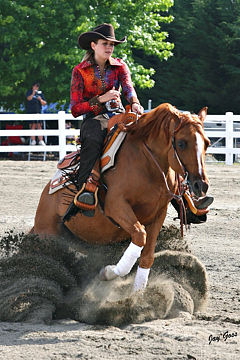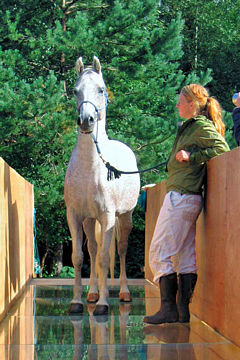![]()
Member Report from Turkey
REPORT MADE AT 2022 CONFERENCE
Anatolia is an ancient geography that has been home to many civilizations for centuries. Turks, the ancient nation of Anatolia, have founded many civilizations in history on horseback. That is why Turks attach great importance to horses. It is a known fact that a nation that attaches such importance to the horse once bred the world’s best horses in Anatolia. Our Ministry of Agriculture and Forestry supports the Horse Breeding Sector at every stage to ensure its further development globally. The General Directorate of Agricultural Enterprises, a subsidiary of the Ministry of Agriculture and Forestry, is one of the most important centers in the world for breeding and improving Purebred Arabian Horses. It has a well-deserved reputation in the world in Purebred Arabian Horse breeding with its improvement works for many years. The continuation of these enterprises is extremely important in terms of preserving the purity of the Purebred Arabian Horse and ensuring genetic development.
There are 23,707 Purebred Arabian horses registered in the Turkish Studbook. 47.33% of the total registered Purebreds are Purebred Arabian Horses. 1,814 Purebred Arabian Foals were registered in 2020, 2,202 in 2021, and 819 in 2022. It is envisaged to register 2386 Purebred Arabian foals by the end of 2022.
In 2020, a total of 100 Purebred Arabian horses were exported to Iran and Iraq;
In 2021, a total of 52 to Northern Cyprus, Bulgaria, and Iraq;
In 2022, a total of 119 to Bulgaria and Iraq.
Purebred Arabian horses were not imported in 2020, 2021, and 2022; the last import of Purebred Arabian horses was in 2016.
The General Directorate of Agricultural Enterprises, a subsidiary of the Ministry of Agriculture and Forestry, has exported semen of Purebred Arabian stallions named Turbo, Ayabakan, and Tamerinoğlu, which have the high genetic capability, in the past years, and it is planned to continue such semen export transactions in the following period in line with the permission of our Ministry.
2,624, 2,821, and 3122 artificial and natural inseminations were performed in 2020, 2021, and 2022, respectively. Embryo Transfer is not performed in our country.
The Purebred Arabian Studbook is published every 4 years, and the 8th volume, which covers the foals born between 2018-2021, was last published in our country. All prepared Studbooks are published on www.ykk.gov.tr. The next Studbook (Volume 9) will cover foals born between 2022-2025 and is planned to be published in 2026.
The number of Purebred Arabian Horse Races is 2,560, which covers 45% of the total number of races. This rate constitutes 43% of the total prize money. The number of Purebred Arabian horses that continue their active running life is 3,085, which corresponds to 45% of the total number of running horses. The total number of Group races in 2022 is 131, of which 59 (45%) are races for Purebred Arabian Horses
SATBİS (Purebred Horse Information System) is a web-based platform through the ykk.gov.tr address where business/processes such as registration, name, sale, etc. are managed before, during and after the registration of Purebred Racehorses to Studbook. The developed platform is actively used by authorized Veterinarians in all institutions and organizations affiliated with the Ministry of Agriculture and Forestry. Also through this system, horse owners or those concerned can access all kinds of information about the horses they own.
In accordance with WAHO rules and National legislations, “ISO 11785 DESTRON” standards are applied for the Microchips that must be implanted in Purebreds.
The DNA analysis reports required by WAHO and national legislation for the registration of Purebreds in the Stud Book are carried out in the Genetics Laboratory of the Directorate of Veterinary Control Central Research Institute under the Ministry of Agriculture and Forestry, and this laboratory has been an institutional member of ISAG (International Society for Animal Genetics) since 1996.
Doping control analyses of our Purebred race horses are carried out in the doping control laboratories of the Directorate of Veterinary Control Central Research Institute and the Directorate of İstanbul Pendik Veterinary Control Institute. In 2002, Directorate of Veterinary Control Central Research Institute Central Doping Laboratory became a professional member of the internationally respected AORC (Association Official Racing Chemists) and became an International Reference Laboratory. Directorate of İstanbul Pendik Veterinary Control Institute Doping Laboratory is also a member of AORC (Association Official Racing Chemists) and gained its membership in 2016.
By the Turkish Jockey Club, the racing institution authorized by the Ministry of Agriculture and Forestry; Monthly brochures and magazines are published, Information and announcements are made through the www.tjk.org website and mobile application, TJK TV and TAY TV, a national TV channel, broadcast daily information, Trainings, courses and seminars are organized for horse owners, Veterinarians, Jockeys, Trainers, Apprentices, Farriers and Grooms through trainers from home and abroad. The General Directorate of Agricultural Enterprises, a subsidiary of the Ministry of Agriculture and Forestry, makes promotional broadcasts in the national press and organizes horse sales days at hippodromes inviting the public. Catalogs containing information on the stallions and mares bred in TİGEM Studs are published and made available to the public.
In our country, many Associations and Federations, especially the Federation of Traditional Sports Branches and the Equestrian Federation, independently organize traditional activities such as javelin, archery, sledding, endurance, gymnastics, dressage, etc. under the name of equestrian sports.
WAHO and National legislative rules are published on the official website (www.ykk.gov.tr) as well as in printed sources. In addition to these, information is provided to sector stakeholders through bulletin boards in the racecourses of the Turkish Jockey Club (www.tjk.org) and the General Directorate of Agricultural Enterprises (www.tigem.gov.tr), national press, social media, magazines and brochures.
2019 REPORT:
In Turkey in 2018, 1782 foals were registered. 12 horses were exported. There were 2,233 races for Arabians and 76 endurance competitions.
REPORT MADE AT 2017 WAHO CONFERENCE:
Dr. Ilker Altintas, Turkey: Good morning Mr. Chairman and Executive Committee members and other guests, my name is Dr. Ilker Altintas, I am the stud book specialist and I will give the report on behalf of our Head of Stud Book, Mr. Murat Durmaz. Since our Membership of WAHO Turkey has published its fifth volume of our stud book, the fifth volume was published in 2016. It covers the years between 2010 and 2013. In addition the website address is www.ykk.co.tr. and information of the registered foals is published on our website.
The number of registered purebred Arabian Horses in Turkey is around 17,000, approximately 1,650 Pure bred Arabian foals were registered per year. In the last year there was a small increase in the number of registered Arabian horses. In recent years the number of broodmares used in breeding is 2,400 and the number of breeding stallions is 218. In the last years the number of imports has not shown any differences, but exports increased. Import and export operations are continued in the regular framework. Until the end of 2005 blood typing was used for parent verification in registering horses. Since November 2005, DNA typing has been used. There is no other genetic testing. Use of microchips, which have hidden codes and are ISO number 11784 or 11785, was initiated with the foals born in 2006. Since the year 2005, the Universal Equine Life Number and life number were put on usage. In 2019 there will be no purebred Arabian horses without microchips.
Regarding activities, there are only flat races organised by the Jockey Club of Turkey under the authority of the Ministry of Food, Agriculture and Livestock. Apart from this flat racing there are local races organised for purebred Arabians. The purebred Arabian horse breeding is incentivised in Turkey, the most important incentive was that 2,479 races with approximately 60 million US Dollars prize money and also 1 million US Dollars in breeders’ premiums were allocated for Purebred Arabians in 2016. The Ministry purchases horses with special performances in races as breeding stallions, they are standing at stallion stations and the broodmares of the private breeders can visit these stallions for low costs. Courses and seminars are organised by the Ministry in our country to educate the people on horse care, feeding and training. The license is given to participating riders and trainers and working without a licence is forbidden in race world. Thank you for your attention.
REPORT MADE AT 2014 WAHO CONFERENCE:
Dr. Ilker Altintaş, Turkey: My name is Dr. Ilker Altintaş, I am Stud Book specialist at the Ministry of Food, Agriculture and Livestock of Turkey. Before I begin, we would like to thank His Highness Sheikh Abdullah Bin Khalifa Al Thani and the Qatar Racing and Equestrian Club for this WAHO Conference.
Since our membership of WAHO, Turkey has published five Volumes of Stud Book. The fifth volume was published in 2013, and it covers the years between 2006 and 2009. We are working on the sixth volume. In addition, information of all the registered horses is published on our website, our website address is www.ykk.gov.tr. The number of registered living Purebred Arabian Horses in Turkey is 13,850. Approximately 1,500 purebred Arabian Foals are registered per year. In the last few years there was a small increase in the number of registered living horses. In recent years the number of broodmares used in breeding is 2,000 and the number of stallions is 260. In the last few years the numbers of imports has not shown any differences but exports increased. Import and export operations are continuing in the regulatory framework.
Until the end of the year 2005, blood-typing was used for parentage verification in registering horses. Since November 2005, DNA typing began to be used. There is no other genetic testing. Microchip, which has hidden code and its ISO number 11784 or 11785, was initiated with the foals born in 2006. Since the year 2005, UELN and the life number were put on usage. By 2009 there were no purebred Arabian horse without microchips.
There are only flat races organized by The Jockey Club of Turkey under the Authority of The Ministry of Food, Agriculture and Livestock. Apart from flat racing, there are local races organized for Purebred Arabians. Our Ministry supported the Arabian Horses’ Beauty Contest held in 2008 by the Turkish Association of Purebred Arabian Horse Breeders and Owners. Purebred Arabian Horse Breeding is promoted in Turkey. The most important promotion was that 2,172 races with 61.5 million US dollars in prize money and 11.5 million US dollars in Breeders Premiums were allocated for Purebred Arabians in 2013. The Ministry purchases horses with superior performances in races as stallions. Broodmares of the private breeders can visit the stallion stations to be covered by the Ministry’s stallions for a low cost.
Courses and seminars are organized by the Ministry in our country to educate the people for horse care, feeding and training. The licence is given to participating riders, trainers and attendants. Working without a licence is forbidden in racing. A special commission formed by the Turkish Ministry of Food, Agriculture and Livestock will select WAHO Trophy winners from participating Arabian horses and will inform the secretariat of WAHO. Thank you for your attention.
REPORT MADE AT 2011 WAHO CONFERENCE:
Mr. Erdal Celal Sumaytaoglu, Turkey: My name is Erdal Celal Sumaytaoglu, I am the Under Secretary of State at the Ministry of Agriculture and Vice President of the Board of High Stewards which is the Horse Racing Authority and responsible for the Turkish Stud Book. Mr. President, members of the Executive Committee, distinguished guests. Before I begin I would like to thank His Highness Sheikh Abdullah bin Khalifa Al Thani for organizing this wonderful WAHO Conference in Qatar, and for their hospitality. Mr President, I would also like to thank your working team for their extraordinary effort which they have made in this Conference.
Since the Membership of WAHO, Turkey has published four volumes of the studbook, the fourth volume was published in 2006 and it covers the years between 2002 and 2005. We are working on the fifth volume and it will be published by the end of this December. In addition we have an online studbook which is updated on a daily basis and the website for this is www.ykk.gov.tr. Information on the foals and the other issues in Arabian horses will be found on this website. The number of registered living purebred Arabian horses in Turkey is 12,600. Approximately 1,200 purebred Arabian foals are registered per year, in the last years there was a small increase in the number of registered living horses. In recent years the number of broodmares used in breeding is 1,800 and the number of breeding stallions is 260. In the last years the number of imports has not shown any differences, but exports increased in Turkey. Until the end of the year 2005 blood-typing was used for parentage verification in registering horses. Since November 2005, DNA typing started being used. Microchips which have hidden codes and which are ISO compliant 11784 or 11785 were initiated with the foals born in 2006. Since the year 2005, UELNs were put into use. Since 2009, there has not been a purebred Arabian horse in Turkey without a microchip.
For activities, flat racing for purebred Arabians is organized by the Jockey Club of Turkey under the authority of the Ministry of Food, Agriculture and Livestock. Our Ministry-supported Arabian horse beauty contest took place in 2008, organized by the Association of Arabian Horse Breeders and Owners. Purebred Arabian horse breeding is encouraged in Turkey, the most important stimulus was that 1,808 races, with 41 million US dollars in prize money and with 7.7 million US dollars in breeders’ premiums, were allocated for purebred Arabians in 2010. The Ministry purchases horses with superior performance records in races, to become breeding stallions. Broodmares of the private breeders can be covered by these stallions at a low cost. Courses and seminars are organized by the Ministry in our country, to educate the people in horse care, feeding and training. The licence is given to participating riders, trainers and attendants. Working without a licence is forbidden in racing.
A special commission formed by the Turkish Ministry of Food, Agriculture and Livestock has selected the filly named Hayatim, from a number of candidates, as the winner of Turkey’s 2010 WAHO Trophy. Hayatim showed very good performance on the racetrack in the years 2008 to 2010, when she took part in a total of 55 races. Of these, in a country where the racing is very competitive, she achieved the excellent record of 20 wins at racetracks all over Turkey, this included one Group One win, four Group Two wins, and seven Group Three wins. However, unfortunately this year she died because of a tragic car accident.
Taking into account this information we would like to express another issue, which is very important for us. 1,808 races for purebred Arab horses were run in Turkey in 2010. In 2011 that number has been increased to 1,900. The half-bred Arab horses and purebreds competing together leads to an unjust competition which gives rise to inequality. The participation of half-breds with unknown pedigrees “D.B.” with purebred Arab horses in races is giving rise to worldwide disputes, in terms of the reliability of particularly betting-based games, and significantly, taints the racing industry. In the case the system is tainted, purebred racing will come to an end point worldwide. In order to prevent such discrepancies, in line with the backdated resolution of France Galop not to accept purebreds the past generation of which is unknown, as of April 27 2011 and as Turkey holds the highest number of purebred races of racing organizations, we have resolved not to accept in races such purebreds the past 4 generations of which are unknown. We demand that a resolution to be made to implement such resolution by WAHO member countries where purebred races are held. Thank you very much.
REPORT MADE AT 2009 WAHO CONFERENCE:
My name is Associate Professor Muzaffer Aydemir. Since joining membership of WAHO, Turkey has published 4 Volumes of our Arabian stud book. The fourth volume was published in 2006 and it covers the years 2002-2005. We are planning to publish the fifth volume in 2010. We have also got a website, which is www.ykk.gov.tr
The number of living registered purebred Arabian horses in Turkey is 10,200. Approximately 1,100 purebred Arabian foals are registered each year, in the last few years there has been little reported difference in the number of registrations. In recent years the number of broodmares used in breeding is 1,600 and the number of breeding stallions is 250. The numbers of exports and imports within the past 5 years has not shown any difference.
Until the year 2005, blood-typing was used for parent verification in registering horses. Since November 2005 we began to use DNA typing. Use of microchips, which have a hidden code, ISO 11784 or 11785 standard, were initiated with the foals born in 2006. Since the year 2005, UELNs have been put into use. In 2009, there will be no purebred Arabian horse in Turkey without microchip. Artificial Insemination is allowed in Turkey and the foals born are registered. In 2006 a semen freezing laboratory was established in Karacabey, Bursa. The laboratory has started activity.
There are a large number of flat races for purebred Arabian horses, organized by the Jockey Club of Turkey under the authority of the Ministry of Agriculture and Rural Affairs. Our Ministry has also supported an Arabian horse show held in 2008 by the Turkish Association of Purebred Arabian Horse Breeders and Owners.
The racing of purebred Arabian horses is promoted in Turkey as the most important activity. There were 1,646 races with total annual prize money of US $40 million, and annual breeders’ premiums of US $5 million were allocated for purebred Arabians in 2007. The Ministry purchases horses with superior performance in races, to become stallions and broodmares in the State Studs. Stallions are offered to private owners of broodmares at special stallion stations, at low stud fees. Courses and seminars are organized by the Ministry in our country to educate people in horse care, feeding and management. Licences are given to participating riders, trainers and grooms, it is forbidden to work in racing without a licence.
A special Commission formed by the Turkish Ministry of Agriculture and Rural Affairs has selected the colt Ayabakan from a number of candidates as the winner of Turkey’s 2008 WAHO Trophy. Ayabakan showed very good performance on the racetrack in the years 2007 and 2008, when he took part in a total of 15 turf races. In a country in which racing is very competitive, Ayabakan achieved the excellent record of 13 wins at racetracks all over Turkey, including Istanbul, Ankara and Adana, including six Group I wins, two Group II wins, and two Group III wins.
REPORT MADE AT 2007 WAHO CONFERENCE:
Since our Membership of WAHO, Turkey has published 4 volumes of its stud book. The first volume covers 1995 and all previous years; the 2nd volume covers 1996-1999, the 3rd volume covers 2000-2001 and the 4th volume covers 2002-2005. This volume was published in 2006. We plan to publish and distribute the 5th volume in 2010.
The number of registered living purebred Arabian horses is about 8,500. In the years 2005 and 2006 combined, a total of over 2,400 purebred Arabian foals were registered with 1,340 in 2006 and 1,081 in 2005. In recent years, there have been no important changes in the number of foals registered. In 2006 the number of stallions used in breeding is about 300, and the number of broodmares is about 2,000. The number of imports and exports over the past 5 years has not shown any marked differences, remaining low in numbers. In 2001, we imported 17, in 2002 we imported 12 and in both years we exported none, in 2003 we imported none and exported 13, in 2004 we imported none and exported 1, in 2005 we imported 5 and exported none. In 2006 we imported none and exported 5. Until the end of the year 2005, blood-typing was used for parent verification in registering horses. Since November 2005, DNA-typing has been used. The use of microchips, which have a hidden code and ISO number 11784 or 11785, was initiated with the foals born in 2006. Since 2005 the Universal Equine Life Number system has been put into use. Artificial Insemination is allowed in Turkey and the foals born by this method are registered. In 2006 a semen freezing laboratory was established in Karacabey near Bursa.
Regarding activities, there are only flat races organized by the Jockey Club of Turkey under the authority of the Ministry of Agriculture and Rural Affairs. Apart from flat racing, there are as yet no other organized activities for purebred Arabian horses in Turkey. The purebred Arabian horse racing is encouraged in Turkey, without doubt the most important promotion comes from the prize money. 1,515 races were held in 2006, with 35 million US dollars in prize money and 3 million US dollars on offer in Breeders’ Premiums allocated for purebred Arabians. The Ministry of Agriculture purchases horses with superior performance records in racing as stallions for the State Studs. Some of these stallions are made available to cover broodmares belonging to the private breeders at the Ministry’s Stallion Stations for a low stud fee. Courses and seminars are organized by the Ministry of Agriculture, to educate the people in horse care, feeding and training.
In the year 2007, Turkey registered 1,100 foals, and reported 1 export to iran, with no imports.
Click here to open the April 1997 WAHO Investigation and Inspection Report The Turkish Arabian Stud Book.








